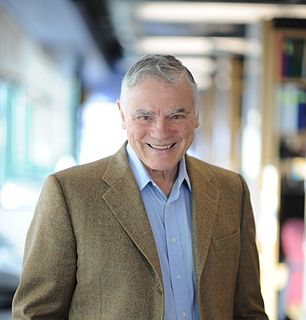A Quote by Richard Dawkins
Genome sequencing has changed taxonomy.
Quote Topics
Related Quotes
The question is, are there useful things that we can do with the results of a genome sequence that would bring benefit? And the answer is, today, should the majority of people go and have their genome sequenced? Probably not. But are there particular circumstances in which genome sequencing is really helpful? Yes, there are.
There's always a question when you invest. Are you too early, are you too late, or are you just right? And there was a lot of hype about life sciences, around the sequencing of the human genome and a lot of people concluded that's not really there. But by the way, there was a lot of hype around the digital revolution just about the time of 2000 and the human genome, and it turns out that some of the world's biggest, most powerful companies are the survivors post that crash.
A taxonomy of abilities, like a taxonomy anywhere else in science, is apt to strike a certain type of impatient student as a gratuitous orgy of pedantry. Doubtless, compulsions to intellectual tidiness express themselves prematurely at times, and excessively at others, but a good descriptive taxonomy, as Darwin found in developing his theory, and as Newton found in the work of Kepler, is the mother of laws and theories.
An important finding is that by determining the genome sequences of an entire family, one can identify many DNA sequencing errors and thus greatly increase the accuracy of the data. This will ultimately help us understand the role of genetic variations in the diagnosis, treatment, and prevention of disease.
It will be the mother of all telescopes, and you can bet it will do for astronomy what genome sequencing is doing for biology. The clumsy, if utilitarian, name of this mirrored monster is Large Synoptic Survey Telescope, or LSST. You can't use it yet, but a peak in the Chilean Andes has been decapitated to provide a level spot for placement.
If something produces an undue amount of pleasure or undue amount of displeasure, it's going to be judged differently and it's going to be introduced in your narrative with a different size, with a different development. So that is the next element to superimpose on the sequencing element. And in fact, that element is so powerful that very often it can trump the sequencing event, that the sequencing aspect.
Taxonomy (the science of classification) is often undervalued as a glorified form of filing-with each species in its folder, like a stamp in its prescribed place in an album; but taxonomy is a fundamental and dynamic science, dedicated to exploring the causes of relationships and similarities among organisms. Classifications are theories about the basis of natural order, not dull catalogues compiled only to avoid chaos.

































